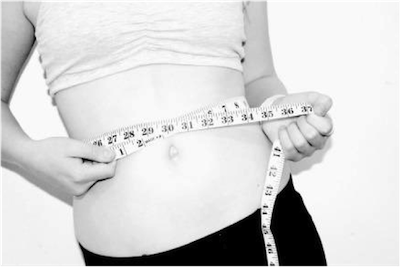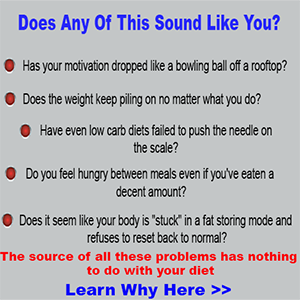The Benefits of Walking For Weight Loss
 Weight loss includes a simple formula: calories in versus calories out. If you want to lose weight, you need to expend more calories than you eat. There are ways that help you to expend calories. They are:
Weight loss includes a simple formula: calories in versus calories out. If you want to lose weight, you need to expend more calories than you eat. There are ways that help you to expend calories. They are:
- cut calories from your diet through calorie restriction
- exercise more, which will help expend extra calories
Now, both options are good to a certain degree. Cutting calories from the diet can put a person in a negative caloric balance, which should result in weight loss.
However, cutting too many calories from the diet can lead to the body shifting in “starvation mode” and conserving fat stores, and reducing metabolic body mass (muscle).
This can have potential problems, because you are now losing the exact tissue that helps you burn extra calories. Creating the right calorie deficit and sparing that tissue from being metabolized, will help promote weight loss.
Exercise, on the other hand, works in the same manner as caloric deficit, except you are not cutting calories.
If you are inactive, increasing your physical activity will help you expend extra calories and help you get on the road to weight loss. 
Having a program of both cardiovascular and strength training has been shown to be an effective way to lose weight and increase muscle mass and tone.
Now, let us break it down even further to the best activities to do, and if walking is an effective exercise to losing weight and keeping it off.
Walking is one of the easiest and most fundamental exercises we can do to increase physical activity.
In order for walking to be considered exercise and not just physical activity, you need to get your heart rate above certain levels, usually 75% of your maximum heart rate, in order for you to get moving expending those calories.
This can be done in short, 10 minute blocks three of four times per day, as long as your heart rate gets above that 75% level, to have a changing impact on weight loss.
Now if you are a couch potato, listen closely. You can increase your calorie output by walking. Increasing your activity from sedentary to active, increases the calorie demand of the body.
So because your body is not used to the activity, it needs to work harder and burn more in order to keep those muscles going.
 There are many great benefits of walking.
There are many great benefits of walking.
You see an increase in calorie demand, but also you are strengthening your circulatory system, altering your lipid composition by increasing your HDL, or good cholesterol, lowering your total cholesterol, and lowering blood pressure.
However, there are some other benefits that should be considered when you start a walking program.
Research done by Ross et al. concluded that weight loss from increased physical activity, and not caloric restriction, resulted in reduced levels of obesity, especially abdominal obesity and insulin resistance in obese men.
They also concluded that exercise without weight loss also reduced obesity levels, and prevented future weight gain from happening.
The purpose of the study was to determine if walking had beneficial effects on obesity levels, particularly visceral fat, subcutaneous fat, and insulin resistance.
Not only is the type of exercise, in this case, walking, important, but the intensity of the exercise can also be important in losing weight and maintaining a healthy weight.
There is debate on how high the intensity needs to be for exercise, and if it is more beneficial for weight loss.
Jakicic et al. conducted research on sedentary woman looking at how intensity and duration affected the outcomes on weight loss. They concluded that all participants in the study demonstrated increased weight loss and cardiovascular fitness during the 12-week program, with both diet and exercise. 
They also concluded that intensity and duration had no significant effects on this group of sedentary woman.
Research done by Brill et al. also found similar results to the research done by Jakicic on intensity.
His team concluded that there was no dose-response effect to walking over diet alone, factoring in moderate to vigorous intensity and duration of exercise.
They also concluded that 30 minutes of walking, on most days of the week, showed the same results as doing 60 minutes and dieting. Not only did it result in weight loss, but it also had other health-related outcomes.
Walking is a great form of exercise that has been shown by research to help with weight loss, and changing potential risk factors in the body.
Differing the intensity of the workout can help increase energy expenditure, but might not have as dramatic an effect as doing the exercise consistently over the course of the week.
.jpg) Making sure you are walking, or increasing your calorie expenditure, is the key to overall weight loss and maintaining the weight loss after dieting.
Making sure you are walking, or increasing your calorie expenditure, is the key to overall weight loss and maintaining the weight loss after dieting.
Overall, walking is a great form of exercise that should always be incorporated into your daily routine of exercise. If you are a beginner, start slowly and let your body adapt to the change in pace and activity, and then progress as you go.
Starting slow will prevent injuries and allow your body time to adapt to the change in energy expenditure.
Remember, walking is cheap and effective at helping you lose weight. There are umbrellas and raincoats when the weather is not ideal, so there is no excuse not to walk.
It can be the first step in improving your health and reaching your weight loss goals.

BREAKTHROUGH: How People Are Losing Weight Without The Gym Or Fancy Diets

The 1 Reason Why You Need MORE Sleep?

The Safe And Gentle Way To ELIMINATE The Nasty Toxins Making You Fat
References:
Heilbronn, L. Jonge, L. Frisard, M. DeLany, J. Larson-Meyer, E. Rood, J. Nguyen, T. Martin, C. Volaufova, J. Most, M. Greenway, F. Smith, S. Deutsch, W. Williamson, D. Ravussin, E. Effect of 6 Month Calorie Restriction on Longevity, Metabolic Adaptions and Oxidative Stress in Overweight Individuals. JAMA. 2006. Vol. 295(13); pp. 1539-1548.
Brill, J. Perry, AC. Parker, L. Robinson, A. Burnett, K. Dose Response effect of walking on weight loss. How much is enough? Inter. J. Obes. 2002. Vol. 24(11); pp. 1484-1493.
Ross, R. Dagnone, D. Jones, P. Smith, H. Paddags, A. Hudson, R. Janssen, I. Reduction in Obesity and Related Comorbid Conditions after Diet-Induced Weight Loss or Exercise-Induced Weight Loss in Men. Ann. Intern. Med. July 18,2000. Vol. 133(2);pp. 92-103.
Jakicic, J. Marcus, B. Gallagher, K. Napolitano, M. Lang, W. Effect of Exercise Duration and Intensity on Weight Loss in Overweight, Sedentary Women. JAMA. 2003. Vol. 290(10); pp. 1323-1330.
About Jayson Hunter & Jaylab Pro

Jaylab Pro was founded by Registered Dietitian Jayson Hunter. Jayson has been recognized as one of America's foremost weight loss experts by America's Premier Experts™. He has also been featured in USA Today for this accomplishment. Jayson is also a best-selling author having co-authored multiple books in health & fitness and business growth. Jayson and the Jaylab Pro team are proud to create content that helps improve the lives of millions of people around the world. We hope you enjoy it just as much as others have.
 If you order a JayLabPro SmartShip product or any Combo Package, we will automatically ship you a new supply of the product or products you have ordered every month, starting 30 days after your initial order is shipped, and continuing until you cancel. The credit card you are using today will be billed the lowest available price for those product or products when your order is shipped, but shipping will be FREE. You may log into your customer account or call our customer service department toll-free at 1-888-9GETPRO (1-888-943-8776) between the hours of 8am – 9pm EST Mon-Fri to cancel future shipments, customize the timing of your shipments, or change the credit card used for billing.
If you order a JayLabPro SmartShip product or any Combo Package, we will automatically ship you a new supply of the product or products you have ordered every month, starting 30 days after your initial order is shipped, and continuing until you cancel. The credit card you are using today will be billed the lowest available price for those product or products when your order is shipped, but shipping will be FREE. You may log into your customer account or call our customer service department toll-free at 1-888-9GETPRO (1-888-943-8776) between the hours of 8am – 9pm EST Mon-Fri to cancel future shipments, customize the timing of your shipments, or change the credit card used for billing.











